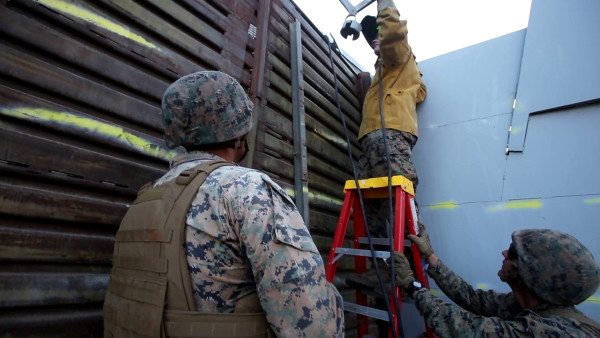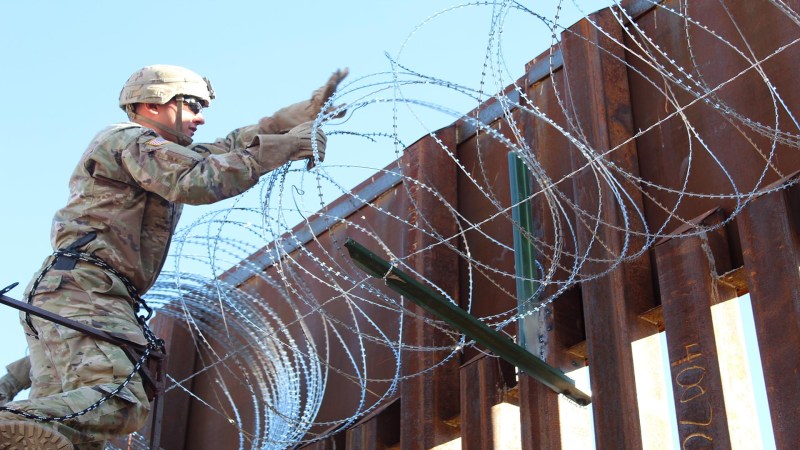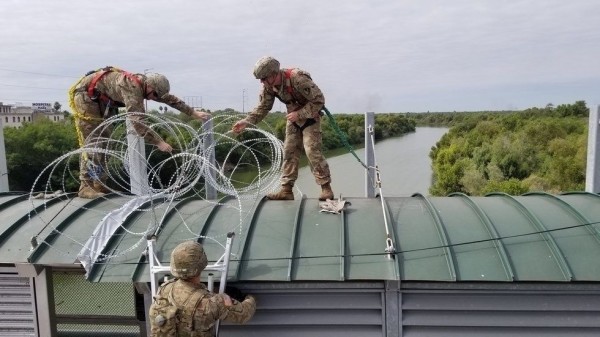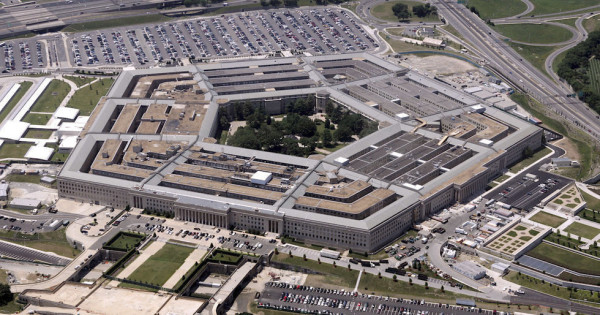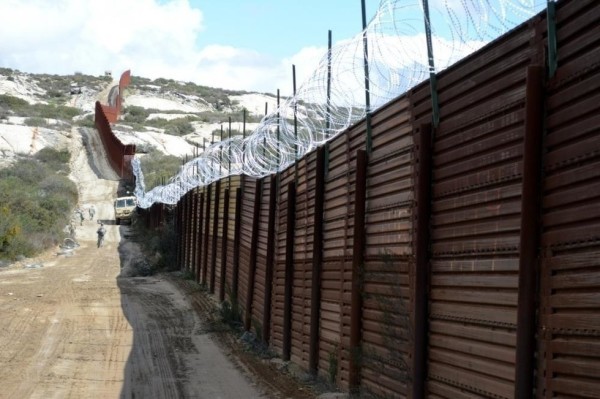Back in December 2018, the incoming chairman of the House Armed Services Committee confidently assured reporters that Congress would prevent President Donald Trump from raiding the Defense Department’s budget to pay for his border wall.
“It’s a question that isn’t really worth asking because the president will send up his budget and we’ll see – and if there is wall funding in it, we’ll all flip out and say, ‘You can’t do that,'” Rep. Adam Smith (D-Wash.) said at a Defense Writers Group breakfast.
As you beloved readers know by now, not only has the president successfully diverted funding for military construction and counter-narcotics operations to pay for the border wall, but the Defense Department is now sacrificing F-35s – once the ultimate golden calf – to help extend the wall another 177 miles.
Since April, the Defense Department has committed to funding a total of 481 miles of border wall, of which more than 30 miles has been built so far, said Pentagon spokesman Army Lt. Col. Christian Mitchell.
The border wall has become an insatiable beast that is sucking up badly needed Defense Department resources. It represents the president’s ultimate triumph over both Democrats and Republicans who object to the military being used as a rainy day fund for Trump’s top domestic priority. And it reveals that Congress is utterly impotent against a determined commander in chief.
As of now, the Pentagon’s proposed budget for fiscal 2021 does not include any funding for border wall construction, the Pentagon’s acting comptroller Elaine McCusker told reporters on Feb. 10.
But it’s hard to imagine that the president would change course if he is re-elected now that he has set a precedent that he can redirect defense spending as he sees fit over the objections of Congress. (The final version of the fiscal 2020 National Defense Authorization Act did not include a provision passed by the House that would have blocked Defense Department funds from being used to build the border wall.)
On Thursday, the Defense Department informed Congress that it had redirected another $3.8 billion to build 177 miles of border wall over the next two years, said Bob Salesses, deputy assistant defense secretary for homeland defense integration and defense support of civil authorities.
Unlike last year, none of that money that has been diverted for the border wall will come from military construction projects, Salesses told reporters during a Pentagon roundtable.
The 30-foot wall will be built over the next two years in the following six U.S. Customs and Border Protection sectors: San Diego, El Centro, Yuma, Tucson, El Paso, and Del Rio, he said. All 177 miles of the border wall will be on federally-owned land.
While Salesses said he does not expect the Department of Homeland Security to ask the Pentagon next year to build more border wall, he would not rule out additional military funding being diverted to build the wall again this year.
“I’m not aware of us doing that at this point, but that’s always a possibility,” Salesses said.
Washington Post reporter Nick Miroff first revealed in January the Trump administration is planning to shift an additional $7.2 billion from civil works projects and military construction to build the border wall this year. About $3.7billion of that money would be taken from military construction projects.
When he was asked on Thursday if he was aware of the reported plans to divert the extra $7.2 billion for the wall, Salesses replied, “I am aware of ongoing discussions but no decisions have been made.”
Anyone who thinks the Pentagon might stand up to the president and refuse to keep funding the border wall has not been paying attention. Defense Secretary Mark Esper recently reaffirmed his support for using the U.S. military’s money to build the wall.
“Border security is national security and national security is our mission,” Esper reportedly said Friday in Munich.
Toward that end, the Pentagon is willing to throw money for more planes, ships, and equipment into the sacrificial flames to pay for the wall. That has even alarmed Rep. Mac Thornberry (R-Texas), an advocate for building a wall along the southwestern border,
“The re-programming announced today is contrary to Congress’s constitutional authority, and I believe that it requires Congress to take action,” Thornberry, the ranking Republican on the House Armed Services Committee, said on Thursday. “I will be working with my colleagues to determine the appropriate steps to take.”
Then again, what exactly can Congress do to stop President Trump: Impeach him again?
Jeff Schogol covers the Pentagon for Task & Purpose. He has covered the military for 14 years and embedded with U.S. troops in Iraq and Haiti. Prior to joining T&P, he covered the Marine Corps and Air Force at Military Times. Comments or thoughts to share? Send them to Jeff Schogol via email at schogol@taskandpurpose.com or direct message @JeffSchogol on Twitter.

